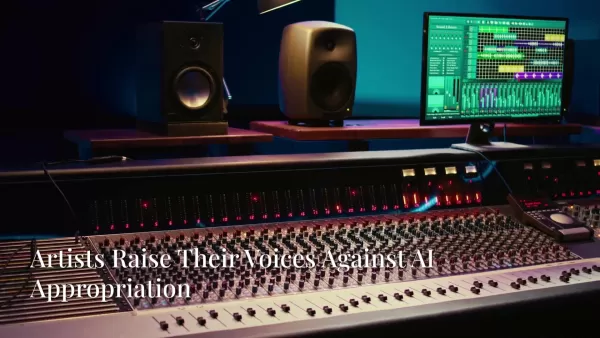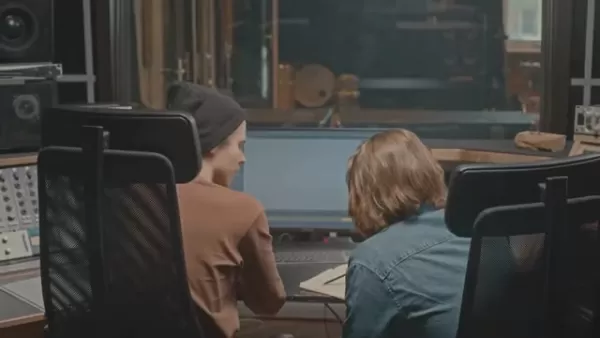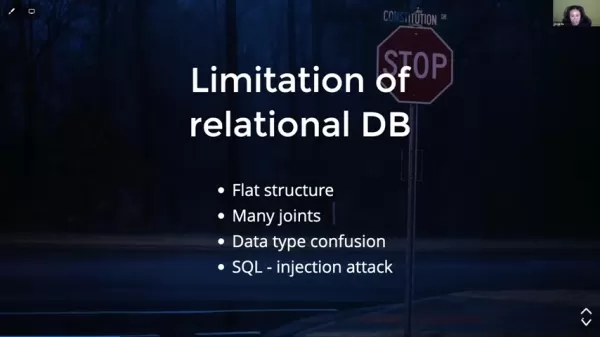Artists Demand Fair AI Music Practices Amid Copyright Disputes
The music industry is experiencing a profound transformation with artificial intelligence (AI) reshaping creation and consumption. While AI unlocks innovative possibilities, it fuels intense debates over copyright, artistic rights, and equitable pay. Artists are voicing alarm over unauthorized use of their distinctive styles, sparking legal battles, protests, and calls for ethical AI boundaries. Is this shift mutually beneficial for artists and AI developers, or does it favor one side? This question grows increasingly urgent.
Key Points
AI is revolutionizing music creation, raising artist concerns about unauthorized use of their work.
A silent album protest by British musicians underscores tensions between AI and artistic rights.
Legal disputes between music giants and AI platforms over copyright violations are intensifying.
Tennessee’s ELVIS Act protects artists’ voices and likenesses from AI misuse.
Consent-based AI systems and blockchain are proposed to ensure fair artist compensation and control.
NFTs offer new ways to distribute and monetize music innovatively.
The AI Music Surge and Artist Pushback
AI’s Rise in Music
The music industry is entering uncharted territory. Artificial intelligence is transforming how music is composed, shared, and enjoyed. AI can craft original tracks, emulate renowned artists’ styles, and tailor listening experiences. This technological wave promises greater productivity and accessibility in music creation.

Yet, challenges arise alongside these advancements.
This progress comes with hurdles. Artists fear AI could undermine human creativity and violate their copyrights, exploiting their unique voices and styles without consent or fair pay.
This conflict has sparked heated discussions about AI’s role in music and the urgent need for ethical guidelines and legal protections. It’s a struggle over who shapes music’s future and how its value is defined in an algorithm-driven era.
Artists Protest: The Silent Album Movement
In a striking act of defiance, over 1,000 British musicians released a silent album, Is This What We Want.

This protest highlights technology’s impact on the music industry. Prominent artists like Kate Bush and Cat Stevens joined, amplifying the message. The silent album powerfully signals unease among artists over AI’s unauthorized use of their work, reflecting fears of exploitation without permission.
The protest underscores the clash between AI and artists’ rights, calling for clear regulations and frameworks. It’s a reminder that real artists fuel the algorithms, with their creativity and livelihoods at stake. How will this shape the industry long-term? Artists seek transparency and control over their music in the AI age.
The ELVIS Act
Tennessee’s Protective Measure
Tennessee has introduced the ELVIS Act to safeguard its musical legacy, protecting artists’ voices and likenesses from AI misuse.

This pioneering law, the Electronic Voice Imitation Likeness Security Act, prevents unauthorized AI-generated imitations of artists, especially deceased icons. It ensures Tennessee musicians retain legal control over their art, even posthumously, in an AI-driven world.
Feature Description Voice Protection Blocks AI from producing unauthorized voice imitations Image Protection Safeguards an artist’s likeness from unapproved AI-generated content Trade Secret Act Aligns with trade secret laws for broader intellectual property protection Legal Precedent Encourages other regions to adopt similar measures against AI art fraud
Balancing AI and Music: Consent-Based Systems
Seeking Ethical Solutions
Navigating AI’s role in music ethically is complex, but solutions are emerging.

A consent-based AI system offers promise, allowing artists to license their music for AI training with clear terms and fair pay. This ensures developers access valuable data while artists retain control and profit fairly, bridging technology and artistic rights.
How it works, simplified:
- Artists Opt-In: Musicians choose to license songs for AI training.
- Clear Agreements: Contracts outline usage, duration, and payment terms.
- Fair Compensation: Options include one-time fees or royalty-sharing for AI-generated tracks.
- Transparency: Developers disclose data usage and outputs for accountability.
Financial Impacts: Copyright and Royalties
Economic Consequences
Unauthorized use of copyrighted music by AI systems significantly affects artists’ earnings. When AI trains on music without permission, it denies creators licensing revenue and royalties.

This threatens artists’ livelihoods. Ongoing lawsuits, involving Sony Music and Universal Music, emphasize the need to protect intellectual property and ensure fair pay. AI’s financial impact on artists will continue shaping how technology adapts to creative industries.
Blockchain’s Role: Benefits and Challenges
Pros
Enhanced transparency and security
Greater artist control over their work
Innovative monetization opportunities
Cons
Technical complexity and barriers
Regulatory uncertainties
Scalability and environmental concerns
AI Music Platforms Under Scrutiny
Copyright Controversies
AI platforms like Suno and Udio face lawsuits from major labels over using copyrighted music for training.

Key details:
Suno: Generates songs from text prompts, now challenged by labels over copyright issues.
Udio: Creates songs from text inputs, raising concerns about copyrighted music in AI training.
Ethical AI Music: Licensing and Practices
Building Fair Frameworks
The Anthropics settlement with publishers signals AI companies’ growing recognition of licensing needs.

This reflects the need for copyright owners’ involvement in AI training. An ethical framework includes:
- Transparency: AI firms disclose data sources and training processes.
- Licensing: Tools require proper agreements with artists and rights holders.
- Attribution: AI-generated music credits original artists if styles are emulated.
- Consent: Artists must approve AI music projects before training begins.
Clear guidelines foster collaboration and ensure oversight in AI music creation.
Frequently Asked Questions
What is the ELVIS Act, and what does it do?
The ELVIS Act in Tennessee protects artists from unauthorized AI use of their voices and likenesses, ensuring control even posthumously.
How can blockchain and NFTs protect artists in the AI era?
Blockchain ensures secure, transparent tracking of music ownership, enforcing copyright and fair pay. NFTs empower artists with new control and monetization options.
Related Questions
What are the benefits of consent-based AI systems for music?
Consent-based systems ensure fairness, balancing AI’s potential with artists’ rights. They promote transparency, accountability, and collaboration, benefiting both developers and musicians.
Related article
 Godai: Elemental Force - Exploring a PlayStation 2 Flop
Godai: Elemental Force. The name hints at epic quests and mystical powers. Yet, for PlayStation 2 players who dared to explore its realm, it’s a title tied to irritation, odd design decisions, and wid
Godai: Elemental Force - Exploring a PlayStation 2 Flop
Godai: Elemental Force. The name hints at epic quests and mystical powers. Yet, for PlayStation 2 players who dared to explore its realm, it’s a title tied to irritation, odd design decisions, and wid
 Google Unveils AI Mode and Veo 3 to Revolutionize Search and Video Creation
Google recently launched AI Mode and Veo 3, two innovative technologies poised to reshape web search and digital content creation. AI Mode delivers a tailored, AI-enhanced search experience that surpa
Google Unveils AI Mode and Veo 3 to Revolutionize Search and Video Creation
Google recently launched AI Mode and Veo 3, two innovative technologies poised to reshape web search and digital content creation. AI Mode delivers a tailored, AI-enhanced search experience that surpa
 AI Industry's Urgent Need for Revision Control Graph Databases
The AI sector is advancing swiftly, requiring advanced tools to manage complex data and workflows. Traditional relational databases often fall short in addressing AI's dynamic data needs, particularly
Comments (0)
0/200
AI Industry's Urgent Need for Revision Control Graph Databases
The AI sector is advancing swiftly, requiring advanced tools to manage complex data and workflows. Traditional relational databases often fall short in addressing AI's dynamic data needs, particularly
Comments (0)
0/200
The music industry is experiencing a profound transformation with artificial intelligence (AI) reshaping creation and consumption. While AI unlocks innovative possibilities, it fuels intense debates over copyright, artistic rights, and equitable pay. Artists are voicing alarm over unauthorized use of their distinctive styles, sparking legal battles, protests, and calls for ethical AI boundaries. Is this shift mutually beneficial for artists and AI developers, or does it favor one side? This question grows increasingly urgent.
Key Points
AI is revolutionizing music creation, raising artist concerns about unauthorized use of their work.
A silent album protest by British musicians underscores tensions between AI and artistic rights.
Legal disputes between music giants and AI platforms over copyright violations are intensifying.
Tennessee’s ELVIS Act protects artists’ voices and likenesses from AI misuse.
Consent-based AI systems and blockchain are proposed to ensure fair artist compensation and control.
NFTs offer new ways to distribute and monetize music innovatively.
The AI Music Surge and Artist Pushback
AI’s Rise in Music
The music industry is entering uncharted territory. Artificial intelligence is transforming how music is composed, shared, and enjoyed. AI can craft original tracks, emulate renowned artists’ styles, and tailor listening experiences. This technological wave promises greater productivity and accessibility in music creation.

Yet, challenges arise alongside these advancements.
This progress comes with hurdles. Artists fear AI could undermine human creativity and violate their copyrights, exploiting their unique voices and styles without consent or fair pay.
This conflict has sparked heated discussions about AI’s role in music and the urgent need for ethical guidelines and legal protections. It’s a struggle over who shapes music’s future and how its value is defined in an algorithm-driven era.
Artists Protest: The Silent Album Movement
In a striking act of defiance, over 1,000 British musicians released a silent album, Is This What We Want.

This protest highlights technology’s impact on the music industry. Prominent artists like Kate Bush and Cat Stevens joined, amplifying the message. The silent album powerfully signals unease among artists over AI’s unauthorized use of their work, reflecting fears of exploitation without permission.
The protest underscores the clash between AI and artists’ rights, calling for clear regulations and frameworks. It’s a reminder that real artists fuel the algorithms, with their creativity and livelihoods at stake. How will this shape the industry long-term? Artists seek transparency and control over their music in the AI age.
The ELVIS Act
Tennessee’s Protective Measure
Tennessee has introduced the ELVIS Act to safeguard its musical legacy, protecting artists’ voices and likenesses from AI misuse.

This pioneering law, the Electronic Voice Imitation Likeness Security Act, prevents unauthorized AI-generated imitations of artists, especially deceased icons. It ensures Tennessee musicians retain legal control over their art, even posthumously, in an AI-driven world.
| Feature | Description |
|---|---|
| Voice Protection | Blocks AI from producing unauthorized voice imitations |
| Image Protection | Safeguards an artist’s likeness from unapproved AI-generated content |
| Trade Secret Act | Aligns with trade secret laws for broader intellectual property protection |
| Legal Precedent | Encourages other regions to adopt similar measures against AI art fraud |
Balancing AI and Music: Consent-Based Systems
Seeking Ethical Solutions
Navigating AI’s role in music ethically is complex, but solutions are emerging.

A consent-based AI system offers promise, allowing artists to license their music for AI training with clear terms and fair pay. This ensures developers access valuable data while artists retain control and profit fairly, bridging technology and artistic rights.
How it works, simplified:
- Artists Opt-In: Musicians choose to license songs for AI training.
- Clear Agreements: Contracts outline usage, duration, and payment terms.
- Fair Compensation: Options include one-time fees or royalty-sharing for AI-generated tracks.
- Transparency: Developers disclose data usage and outputs for accountability.
Financial Impacts: Copyright and Royalties
Economic Consequences
Unauthorized use of copyrighted music by AI systems significantly affects artists’ earnings. When AI trains on music without permission, it denies creators licensing revenue and royalties.

This threatens artists’ livelihoods. Ongoing lawsuits, involving Sony Music and Universal Music, emphasize the need to protect intellectual property and ensure fair pay. AI’s financial impact on artists will continue shaping how technology adapts to creative industries.
Blockchain’s Role: Benefits and Challenges
Pros
Enhanced transparency and security
Greater artist control over their work
Innovative monetization opportunities
Cons
Technical complexity and barriers
Regulatory uncertainties
Scalability and environmental concerns
AI Music Platforms Under Scrutiny
Copyright Controversies
AI platforms like Suno and Udio face lawsuits from major labels over using copyrighted music for training.

Key details:
Suno: Generates songs from text prompts, now challenged by labels over copyright issues.
Udio: Creates songs from text inputs, raising concerns about copyrighted music in AI training.
Ethical AI Music: Licensing and Practices
Building Fair Frameworks
The Anthropics settlement with publishers signals AI companies’ growing recognition of licensing needs.

This reflects the need for copyright owners’ involvement in AI training. An ethical framework includes:
- Transparency: AI firms disclose data sources and training processes.
- Licensing: Tools require proper agreements with artists and rights holders.
- Attribution: AI-generated music credits original artists if styles are emulated.
- Consent: Artists must approve AI music projects before training begins.
Clear guidelines foster collaboration and ensure oversight in AI music creation.
Frequently Asked Questions
What is the ELVIS Act, and what does it do?
The ELVIS Act in Tennessee protects artists from unauthorized AI use of their voices and likenesses, ensuring control even posthumously.
How can blockchain and NFTs protect artists in the AI era?
Blockchain ensures secure, transparent tracking of music ownership, enforcing copyright and fair pay. NFTs empower artists with new control and monetization options.
Related Questions
What are the benefits of consent-based AI systems for music?
Consent-based systems ensure fairness, balancing AI’s potential with artists’ rights. They promote transparency, accountability, and collaboration, benefiting both developers and musicians.
 Godai: Elemental Force - Exploring a PlayStation 2 Flop
Godai: Elemental Force. The name hints at epic quests and mystical powers. Yet, for PlayStation 2 players who dared to explore its realm, it’s a title tied to irritation, odd design decisions, and wid
Godai: Elemental Force - Exploring a PlayStation 2 Flop
Godai: Elemental Force. The name hints at epic quests and mystical powers. Yet, for PlayStation 2 players who dared to explore its realm, it’s a title tied to irritation, odd design decisions, and wid
 AI Industry's Urgent Need for Revision Control Graph Databases
The AI sector is advancing swiftly, requiring advanced tools to manage complex data and workflows. Traditional relational databases often fall short in addressing AI's dynamic data needs, particularly
AI Industry's Urgent Need for Revision Control Graph Databases
The AI sector is advancing swiftly, requiring advanced tools to manage complex data and workflows. Traditional relational databases often fall short in addressing AI's dynamic data needs, particularly





























